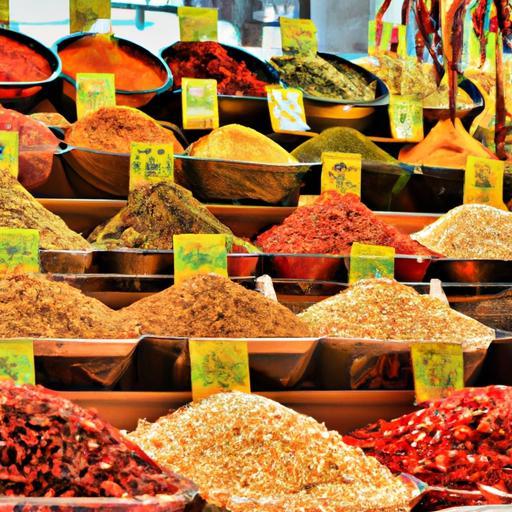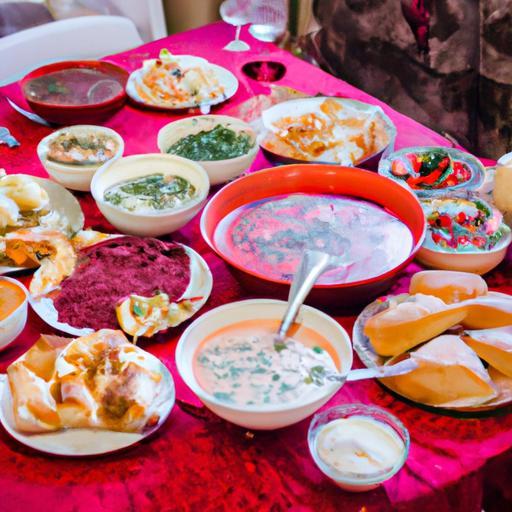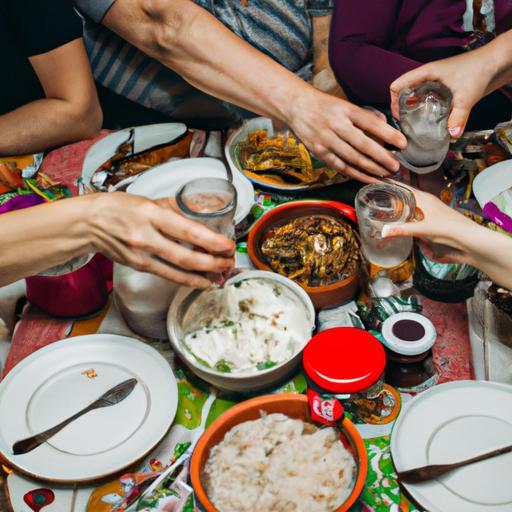Have you ever wondered about the fascinating culinary heritage of Russia? From hearty stews to delicate pastries, Russian cuisine is a true reflection of the country’s rich history and diverse cultural influences. In this article, we delve into the depths of russian food culture and history, uncovering the evolution of its traditional dishes, the significance of culinary rituals, and the ingredients that make Russian cuisine so unique. Join us on this flavorful journey through Russia’s gastronomic wonders.
Introduction to Russian Food Culture and History
Russia, a country known for its vast landscapes and vibrant history, holds a culinary heritage that is as diverse as its people. Russian food culture has been shaped by centuries of cultural exchange, blending influences from neighboring countries and civilizations. Understanding the significance of Russian cuisine is essential to truly appreciate the country’s traditions and customs.
Evolution of Russian Food Culture
Over the centuries, Russian food culture has evolved, absorbing elements from various civilizations and adapting to the changing times. Let’s take a closer look at the historical background and influences that have shaped Russian cuisine:
Early Influences and the Mongol Era
Russian food culture traces its roots back to the ancient Slavic tribes that inhabited the region. These early settlers relied on simple yet hearty dishes made from local ingredients like grains, vegetables, and dairy products. As trade routes expanded, so did the culinary influences on Russian cuisine. The Mongols, for example, introduced new cooking techniques and ingredients, such as spices and dried fruits, which added a distinct flavor profile to Russian dishes.
Western European Influences
During the reign of Peter the Great, Western European influences began to shape Russian food culture. The introduction of potatoes, tomatoes, and other vegetables revolutionized Russian cooking, leading to the creation of beloved dishes like “borscht” and “shchi.” In the 18th century, French culinary traditions heavily influenced the Russian aristocracy, resulting in the emergence of elegant and sophisticated dishes enjoyed by the upper class.
Traditional Russian Dishes and Ingredients
Russian cuisine is a true celebration of hearty flavors and diverse ingredients. Let’s explore some of the most iconic dishes that have become synonymous with Russian food culture:
1. Borscht: A Hearty Beetroot Soup
Borscht, a soup made from beetroots, is a staple in Russian households. This vibrant dish incorporates a medley of vegetables, including cabbage, carrots, and potatoes, resulting in a hearty and nutritious meal. Served with a dollop of sour cream and accompanied by crusty bread, borscht embodies the essence of Russian comfort food.
2. Pelmeni: Bite-sized Dumplings
Pelmeni, small dumplings filled with meat or vegetables, are a popular dish across Russia. These bite-sized treats are typically served with melted butter, sour cream, or a tangy tomato sauce. Pelmeni are not only delicious but also represent the communal aspect of Russian dining, as they are often made together with family and friends.
3. Blini: Delicate Pancakes with Endless Possibilities
Blini, thin pancakes made from buckwheat or wheat flour, are a versatile dish in Russian cuisine. They can be served sweet, with toppings like honey or jam, or savory, with fillings like caviar, smoked salmon, or sour cream. Blini are commonly enjoyed during Maslenitsa, a traditional Russian festival celebrating the end of winter.
4. Kvass: A Refreshing Fermented Beverage
Kvass, a fermented drink made from rye bread, is a beloved beverage in Russian culture. With a slight tanginess and mild sweetness, kvass provides a refreshing respite during hot summer months. It is often enjoyed alongside traditional Russian snacks like pickles or salted fish.
Essential Russian Ingredients
Russian cuisine also showcases a variety of ingredients that contribute to its distinct flavors. From hearty grains like buckwheat and rye to flavorful herbs such as dill and parsley, Russian dishes incorporate a wide range of ingredients that reflect the country’s diverse geography and climate.
Cultural Significance and Rituals Surrounding Russian Food
In Russian culture, food holds a significant place in traditions and rituals. Let’s delve into the cultural significance of Russian cuisine and explore the customs surrounding food:
Food and Celebrations
Food plays a central role in Russian celebrations and gatherings. Festive occasions like weddings, birthdays, and religious holidays are marked by elaborate feasts that showcase a variety of traditional dishes. These meals not only nourish the body but also serve as a means of bringing together family and friends, fostering a sense of togetherness and community.
Dining Etiquette
Russian dining etiquette is also steeped in tradition. It is customary to start a meal with a toast, usually made with vodka, to honor the host and celebrate the occasion. Sharing food is considered a gesture of goodwill, and it is common for dishes to be passed around the table, promoting a sense of camaraderie.
Conclusion
Russian food culture and history are a testament to the country’s rich heritage and diverse influences. From the ancient Slavic tribes to the Mongol invaders and the European aristocracy, each era has left its mark on Russian cuisine. The traditional dishes, ingredients, and culinary rituals continue to be cherished, reflecting the values of community, togetherness, and celebration.
As you explore the flavors of Russia, you will not only embark on a gastronomic adventure but also gain a deeper understanding of the country’s traditions and customs. So, grab a bowl of borscht, savor the delicate blini, and raise a toast to the culinary wonders of Russian food culture and history.
Want to learn more about different cultures? Check out our [Travel News](link to relevant section/category on your website) section!
 A vibrant Russian market showcasing the diverse ingredients that have shaped the evolution of Russian food culture.
A vibrant Russian market showcasing the diverse ingredients that have shaped the evolution of Russian food culture.
 A delicious spread of traditional Russian dishes, including borscht, pelmeni, blini, and kvass, showcasing the diverse flavors of Russian cuisine.
A delicious spread of traditional Russian dishes, including borscht, pelmeni, blini, and kvass, showcasing the diverse flavors of Russian cuisine.
 A joyful Russian celebration, where family and friends come together to enjoy traditional dishes and raise a toast with glasses of vodka.
A joyful Russian celebration, where family and friends come together to enjoy traditional dishes and raise a toast with glasses of vodka.

